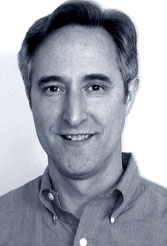

A: I am deputy director of the ATLAS experiment, one of the LHC's four particle detectors. ATLAS will probe the basic forces that shaped our universe since the beginning of time. I also lead the U.S. groups working on the ATLAS Trigger and Data Acquisition System. I have been working toward the physics goals of the LHC for more than 20 years. My research group contributed to the development of two of the major ATLAS instrumentation systems. The Trigger and Data Acquisition System selects the particle interactions that ATLAS will record for future study and gathers the data for recording. The Muon Spectrometer measures the trajectories of muons (a type of elementary particle).
A: The high energy and intensity of the LHC will provide new vistas on fundamental natural phenomena. Who knows what new phenomena we will observe as we recreate conditions that have not existed since the first moments following the creation of the universe? Our group will search for particle interactions that are signatures of new phenomena.
A: The greatest benefit will be a deeper understanding of the natural world. Hopefully, this knowledge and new phenomena observed at the LHC will tickle the fancy of the public and capture the imagination of many young students and future scientists. In addition, instrumentation and technology developed for the LHC will lead to applications in medicine, other fields of research, and in industry and commerce.
A: When one studies at the frontiers of scientific understanding, one not only gains the knowledge established by previous generations of scientists, one learns of the unanswered questions. The quest to answer these questions is exciting.